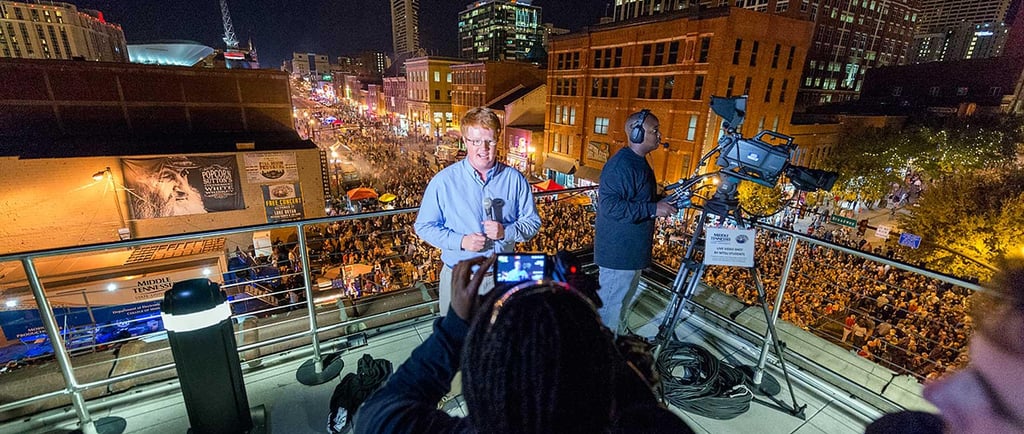Kaydence partners with the CSH to drive innovative solutions in education and healthcare.
Exploring Career Paths: What Can You Do with a Media and Communications Degree?
A degree in media and communications opens the door to diverse career opportunities in journalism, digital marketing, public relations, broadcasting, and more. This blog explores what you learn in a media and communications degree, the skills you gain, and the exciting job prospects available after graduation. Whether you’re interested in storytelling, social media, advertising, or media production, discover how this versatile degree can shape your future.
EDUCATION AND LEARNING
2/7/20253 min read


The world is more connected than ever, and media plays a crucial role in shaping opinions, spreading information, and influencing society. A degree in media and communications equips students with the skills to understand, create, and manage content across various platforms, opening doors to exciting careers in journalism, public relations, digital marketing, broadcasting, and more. But what exactly does this degree entail, and what career opportunities can it offer? Let’s explore.
What is Media and Communications?
Media and communications is the study of how information is created, shared, and interpreted across different platforms. It covers everything from traditional media (newspapers, radio, and television) to digital and social media.
This field examines how media influences public perception, shapes culture, and affects political and social movements. It also delves into the technical aspects of content creation, storytelling, and media production.
What Do You Learn in a Media and Communications Degree?
A media and communications degree offers a diverse curriculum that blends theory with practical skills. Some of the key topics covered include:
Journalism & Reporting – Learning how to research, write, and present news stories.
Digital Media & Social Media Strategy – Understanding how online platforms influence communication and marketing.
Public Relations (PR) & Corporate Communication – Managing a brand’s image and crafting strategic messages.
Advertising & Marketing – Exploring how businesses use media to promote products and engage audiences.
Film, TV & Radio Production – Gaining hands-on experience in media production and storytelling.
Media Ethics & Law – Understanding the legal and ethical responsibilities of media professionals.
Many universities also offer opportunities for internships, allowing students to gain real-world experience in media organisations, PR firms, or digital marketing agencies.
What Should I Study If I Want to Pursue a Media and Communications Degree?
While entry requirements may vary, aspiring media and communications students should develop skills in:
English & Writing – Strong communication skills are essential for journalism, PR, and content creation.
Business & Marketing – Understanding consumer behaviour and market trends is useful for advertising and digital media roles.
Technology & Design – Familiarity with digital tools, video editing, and graphic design can be an advantage.
Social Sciences (Psychology, Sociology, or Political Science) – These subjects help in understanding audience behaviour and media influence.
Many universities accept students from various educational backgrounds, but an interest in media, storytelling, and technology is essential.
What Do People Who Study Media and Communications Do After Graduation?
A media and communications degree offers versatile career paths across multiple industries. Some popular roles include:
Journalist – Writing and reporting news for print, digital, or broadcast media.
Public Relations (PR) Specialist – Managing brand reputation and handling media relations.
Digital Marketing Specialist – Creating online campaigns, managing social media, and analysing digital trends.
Broadcasting (TV/Radio Presenter, Producer) – Working in television, radio, or podcasting.
Advertising Executive – Developing marketing campaigns for brands and companies.
Social Media Manager – Creating content and managing online engagement for businesses and influencers.
Film & Video Production – Working in filmmaking, editing, or media production.
Corporate Communications Officer – Handling internal and external company communications.
Many graduates also pursue careers in media research, government communication, or even start their own digital content ventures.
Famous People Who Studied Media and Communications
Many successful personalities have pursued degrees in media and communications before making a mark in their respective fields. Some notable examples include:
Oprah Winfrey – The world-renowned talk show host and media mogul studied communication at Tennessee State University.
Anderson Cooper – The CNN journalist and news anchor holds a degree in political science but later studied journalism and communications.
Ellen DeGeneres – The comedian and television host studied communication studies before building her media empire.
Donald Glover (Childish Gambino) – The actor, musician, and writer studied dramatic writing and communication at NYU.
Jon Stewart – The comedian and former host of The Daily Show studied psychology and communications.
These individuals have used their media expertise to shape narratives, influence public discourse, and entertain global audiences.
Conclusion
A media and communications degree is ideal for those who love storytelling, content creation, and the digital world. With opportunities spanning journalism, marketing, PR, and entertainment, graduates can build careers that shape public perception and drive communication in the digital age. Whether you dream of being a journalist, social media expert, or filmmaker, this degree provides the foundation to explore and thrive in the ever-evolving media landscape.
Kaydence Consultancy
Global platform for study abroad solutions, marketing strategy and your efficient research partner
Contact
Get in touch
director@kaydenceconsultancy.com
+9188916082
© 2025 Kaydence Consultancy. All rights reserved.
Designed with care | Powered by Innovation
Navigation
Company
Career
Legal
M G Road, Kochi, Kerala, India
